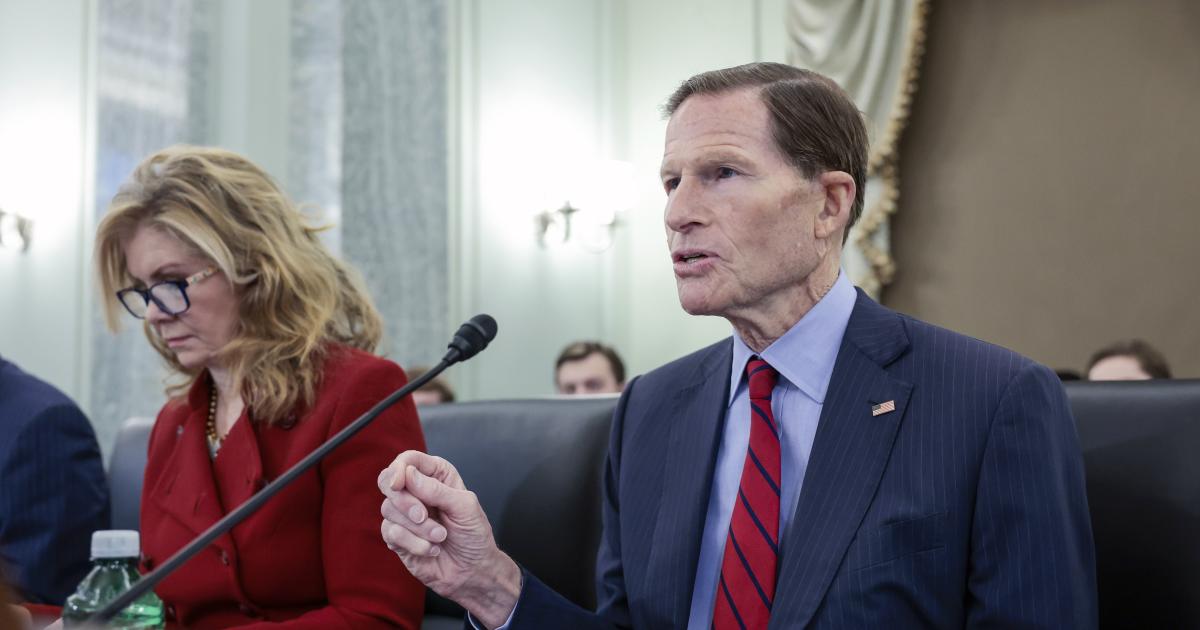
US Senators Richard Blumenthal (D-CT) and Marsha Blackburn (R-TN) reintroduced a bill today that would put the onus on social media companies to add online safeguards for children. The Kids Online Safety Act (KOSA) was first introduced last February (sponsored by the same pair) but never made it to the Senate floor after backlash from advocacy groups. The revamped legislation “provides specific tools to stop Big Tech companies from driving toxic content at kids and to hold them accountable for putting profits over safety,” said Blumenthal. It follows a separate bill introduced last month with a similar aim.
Like the original KOSA, the updated bill would require annual independent audits by “experts and academic researchers” to force regulation-averse social media companies to address the online dangers posed to children. However, the updated legislation attempts to address the concerns that led to its previous iteration’s downfall, namely that its overly broad nature could do more harm than good by requiring surveillance and censorship of young users. The EFF described the February 2022 bill as “a heavy-handed plan to force platforms to spy on young people” that “fails to properly distinguish between harmful and non-harmful content, leaving politically motivated state attorneys general with the power to define what harms children. One of the primary fears is that states could use the flimsy definitions to ban content for political gain.”
The rewritten bill adds new protections for services like the National Suicide Hotline, LGBTQ+ youth centers and substance-abuse organizations to avoid being unnecessarily harmed. In addition, it would make social platforms give minors options to safeguard their information, turn off addictive features and opt out of algorithmic recommendations. (Social platforms would have to enable the strongest settings by default.) It would also give parents “new controls to help support their children and identify harmful behaviors” while offering children “a dedicated channel to report harms” on the platform. Additionally, it would specifically ban the promotion of suicide, eating disorders, substance abuse, sexual exploitation and the use of “unlawful products for minors” like gambling, drugs and alcohol. Finally, it would require social companies to provide “academic and public interest organizations” with data to help them research social media’s effects on the safety and well-being of minors.
The American Psychological Association, Common Sense Media and other advocacy groups support the updated bill. It has 26 cosponsors from both parties, including lawmakers ranging from Dick Durbin (D-IL) and Sheldon Whitehouse (D-RI) to Chuck Grassley (R-IA) and Lindsey Graham (R-SC). Blackburn told CNBC today that Senate Majority Leader Chuck Schumer (D-NY) is “a hundred percent behind this bill and efforts to protect kids online.”
Despite the Senators’ renewed optimism about passing the bill, some organizations believe it’s still too broad to avoid a negative net impact. “The changes made to the bill do not at all address our concerns,” Evan Greer, director of digital rights advocacy group Fight For the Future, said in an emailed statement to Engadget. “If Senator Blumenthal’s office had been willing to meet with us, we could have explained why. I can see where changes were made that attempt to address the concerns, but they fail to do so. Even with the new changes, this bill will allow extreme right-wing attorneys general to dictate what content platforms can recommend to younger users.”
The ACLU also opposes the resurrected bill. “KOSA’s core approach still threatens the privacy, security and free expression of both minors and adults by deputizing platforms of all stripes to police their users and censor their content under the guise of a ‘duty of care,’” ACLU Senior Policy Counsel Cody Venzke told CNBC. “To accomplish this, the bill would legitimize platforms’ already pervasive data collection to identify which users are minors when it should be seeking to curb those data abuses. Moreover, parental guidance in minors’ online lives is critical, but KOSA would mandate surveillance tools without regard to minors’ home situations or safety. KOSA would be a step backward in making the internet a safer place for children and minors.”
Blumenthal argues that the bill was “very purposely narrowed” to prevent harm. “I think we’ve met that kind of suggestion very directly and effectively,” he said at a press conference. “Obviously, our door remains open. We’re willing to hear and talk to other kinds of suggestions that are made. And we have talked to many of the groups that had great criticism and a number have actually dropped their opposition, as I think you’ll hear in response to today’s session. So I think our bill is clarified and improved in a way that meets some of the criticism. We’re not going to solve all of the problems of the world with a single bill. But we are making a measurable, very significant start.”

